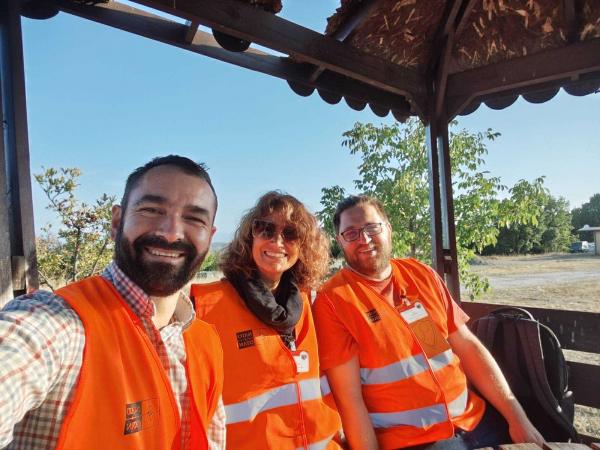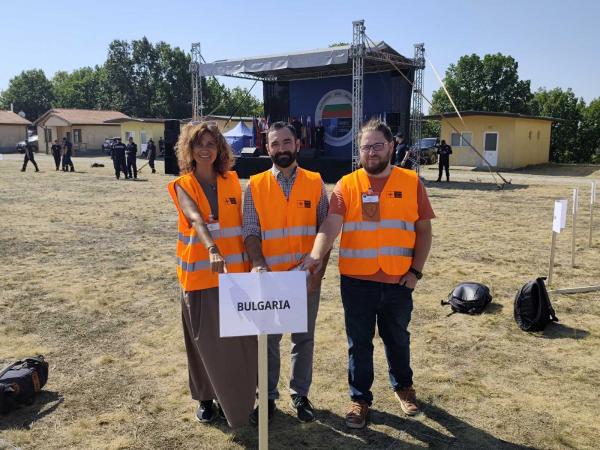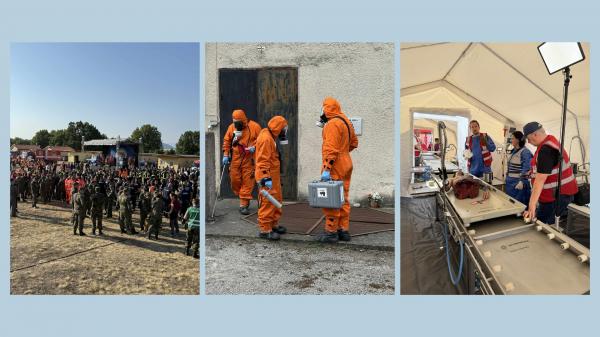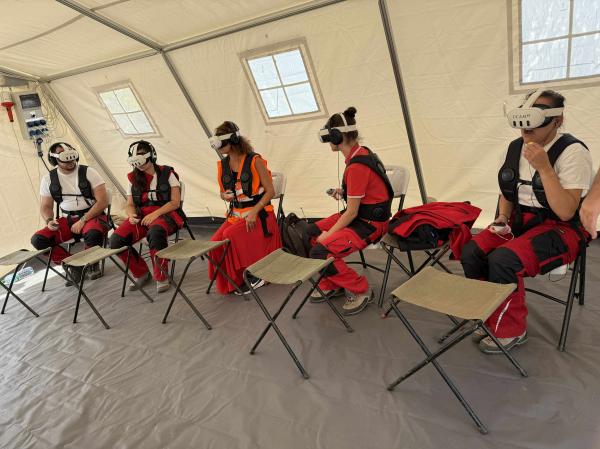15.09.2025
For the first time, three researchers from the Faculty of Economics and Business Administration (FEBA) at Sofia University were granted access to a NATO exercise in the field of civil protection — “Bulgaria 2025” — in its full format. This participation allowed them to observe and analyze scientific and practical aspects of crisis management that had not previously been accessible to the academic community to such an extent.
The “Bulgaria 2025” exercise was the 20th international NATO exercise on emergency management, organized in cooperation with the General Directorate “Fire Safety and Civil Protection” at the Ministry of Interior, the NATO Euro-Atlantic Disaster Response Coordination Centre (EADRCC), and the Crisis Management and Disaster Response Centre of Excellence (CMDR COE).
The exercise took place from 8 to 12 September 2025, with a base camp at Erden Airfield, Montana Municipality. More than 1,200 participants from over 40 countries and international organizations took part. The exercise covered a wide range of scenarios — natural disasters, technological accidents, hybrid threats, and complex emergencies — and included tests of logistical procedures, as well as the reception and management of international assistance.
The research team from FEBA had the opportunity for direct contact with participants — military personnel, civil protection and rescue service staff, as well as other experts — in order to collect insights and experiences on topics such as critical infrastructure resilience, resource management in crisis situations, and cooperation between national and international organizations.
In addition, the team observed from a safe distance the practical demonstrations — simulations of floods, technological failures, and scenarios involving terrorist threats and battlefield pathology. Within these activities, the researchers from FEBA became acquainted with methodologies for studying damage, trauma, and impacts on the human body and infrastructure; approaches to identifying cause-and-effect relationships in cases of disasters, accidents, or violence; as well as modern applications of virtual reality in the field of disaster and crisis response.
The results of the collected data are to be systematized and published in a special academic edition dedicated to crisis management, security, and cooperation between the academic and practical fields.






